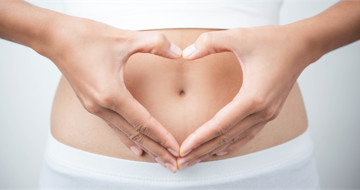Diet therapy in the management of Short Bowel Syndrome (SBS) is a critical component of treatment, tailored to the specific anatomical and functional realities post-surgery. The approach is nuanced, taking into account several factors related to the extent of intestinal resection and the inherent adaptability of the remaining intestine.
Pre-Surgical Nutritional Optimization
- Objective: Address any pre-existing malnutrition or specific nutrient deficiencies through enteral (tube feeding) or oral nutritional supplements. This foundational step aims to enhance the patient’s nutritional status, supporting recovery and adaptation post-surgery.
Post-Surgical Diet Therapy Considerations
- Immediate Post-Operative Nutrition: Early initiation of oral intake post-surgery is recommended to leverage and stimulate the residual intestine’s absorptive capacity. This early stimulation is crucial for promoting adaptive processes in the remaining intestine.
- Adaptation Potential: Up to 50% resection of the small intestine typically allows for compensatory adaptations. The specific approach to diet therapy will vary based on the extent of resection and the segments removed.
- Segment-Specific Considerations:
- Removal of the Jejunum: Often, the ileum can compensate for the jejunum’s absorptive functions, albeit with a period of adaptation.
- Intact Ileum: If the ileum remains intact, bile acid reabsorption occurs, which can mitigate diarrhea. An intact colon can ferment unutilized carbohydrates into short-chain fatty acids, which are then absorbed, providing an energy source and aiding in water and sodium absorption, thereby reducing diarrhea.
- Removal of the Ileum: This can lead to bile acid malabsorption, resulting in chologenic diarrhea and, if extensive (over 100 cm), can contribute to steatorrhea due to impaired fat absorption.
- Parenteral Nutrition: In cases where oral intake is insufficient to meet nutritional needs due to extensive resection or inadequate adaptation, parenteral nutrition becomes necessary. This is particularly true for remaining bowel lengths of 30-50 cm, where long-term parenteral support is essential.
- Dietary Adjustments: For those with remaining bowel lengths of 50-70 cm or 110-115 cm, specialized dietary regimens are crucial. These include:
- High-energy, low-bulk diets: To maximize nutrient absorption while minimizing intestinal workload.
- Medium-Chain Triglycerides (MCTs): Incorporated due to their easier absorption, which does not require bile acids.
- Vitamin and Mineral Supplementation: Tailored to specific deficiencies that arise from malabsorption.
- Management of Diarrhea and Steatorrhea: Involves dietary adjustments, such as reducing fat intake, choosing easily digestible foods, and potentially using medications to reduce bile acid-induced diarrhea or to thicken stools.
Long-Term Management
For individuals with significant resections, ongoing assessment and adjustment of diet therapy are critical. Regular follow-ups with a multidisciplinary team, including gastroenterologists, dietitians, and surgeons, are essential to adapt dietary plans as the patient’s condition evolves and to manage complications that may arise from SBS.
